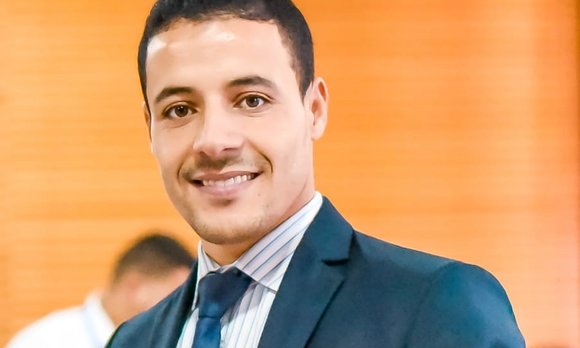
#9: Aziz Ghannaj from Morocco
About Aziz:
Hi! My name is Aziz and I am a 28 years old Moroccan. I live in Soualem, a small town approximately 30 kilometres from Casablanca in the north of Morocco. I have a degree in English, and have been a teacher of English at my local high school for the past five years. I am a member of the Parti de l'environnement et du développement durable (Party for the environment and sustainable development). Since joining the party I have become increasingly active in politics, and I will be running in my first municipal election in September!
What does democracy mean to you?
This is no easy question to answer, and a pretty big question. To me, put very simply, it is a system where each and every individual has the opportunity to have a say in what happens in their immediate surroundings within a community. I strongly believe in a participatory democracy: it is important for politicians to remain strongly connected to the communities they serve. In the end it is not for politicians to decide on these topics: the opinion of the people should always be considered to be the most important.
What developments do you see that are shaping democracy, in a positive or negative way, in your country?
As a developing democracy, there remains a lot we can improve. However, we also need to recognise that we are currently on the right track to democratising our society more and more. For example, young people have become a lot more involved in politics in recent years, partly thanks to a drive by the King to increase youth participation. We have a very young population, which continues to grow, but has limited interest in politics. We need these people to have trust and participate in their democracy as well. This is exactly where we have been improving in the past four years. Parties now receive funding from the government to set up youth parties, which has led to increased youth participation in our politics. I would definitely put this as the largest democratic improvement we are currently making in Morocco.
Unfortunately, money remains a big factor in our politics. We use party lists for our elections, and the richest members often end up highest on the lists. This is the case because campaigns in Morocco are quite costly, and therefore parties elect richer individuals to higher positions to pay for the costs of campaigning. Hopefully, this is something that will change sooner than later!
What motivates you to be politically active?
Before I entered politics, I was quite skeptical about politicians in general. However, I believe that if you do not engage in politics yourself, someone else will do so on your behalf. But then I figured I could make a difference myself, even if it is just locally in my own town.
Essentially, if I see corrupt politicians who are not engaging with their citizens, the only way to change that is to set the right example and become an active politician myself. Being there is always better than vacating the realm of politics. For example, I noticed that when we started attending council meetings, the politicians would try harder because there were voters watching them during their work and they started vying for our attention and votes. Therefore, even by just being present, you are achieving something politically here.
Of which political achievement are you most proud?
This story needs some background first. My town, Soualem, is relatively close to an oil refinery. As I am sure all of you are aware, these are not the most environmentally friendly factories in the world. The black smoke was visible all day from my window. This resulted in severe air pollution in Soualem. At some point, we collectively decided that it was time to try to end this pollution.
It was not just one group of people in the town: over 10 organisations got together to petition the central government to do something about the pollution. We also threatened to go on strike and demonstrate until changes would be made. This led to them sending a Committee which would look into the pollution issues. After an inspection at the refinery and a visit to our town, the Committee forced the refinery to purchase filters which would reduce the amount of emissions from the refinery drastically. This is something which improved the livelihood of all people in Soualem, so naturally this is an achievement I am very proud of.
What kind of support would you, or other young people active in your country, need more?
The most important thing we need here in Morocco is for young people to trust politics and politicians more. Now, a lot of young people are disillusioned and boycott elections. We need awareness campaigns to interest the youth in politics more. But we also need to accept the fact that we have not listened enough to the youth before and invite them to get involved more now.
Political parties also need to have more trust in their youth. Most parties only recently set up their own youth wings, but the next step is to give these youth wings a meaningful political relevance within their parties, so the youth can be heard too.
What is the added value of training (from organisations like the EFF) to your (political) development?
To me, my NIMAR training with EFF trainers made me aware of the fact that young people need to be active in politics to change things. When I attended my training session in 2015, I had never voted before. However, these training showed me the value of participation, and since the training I have been very involved in politics.
